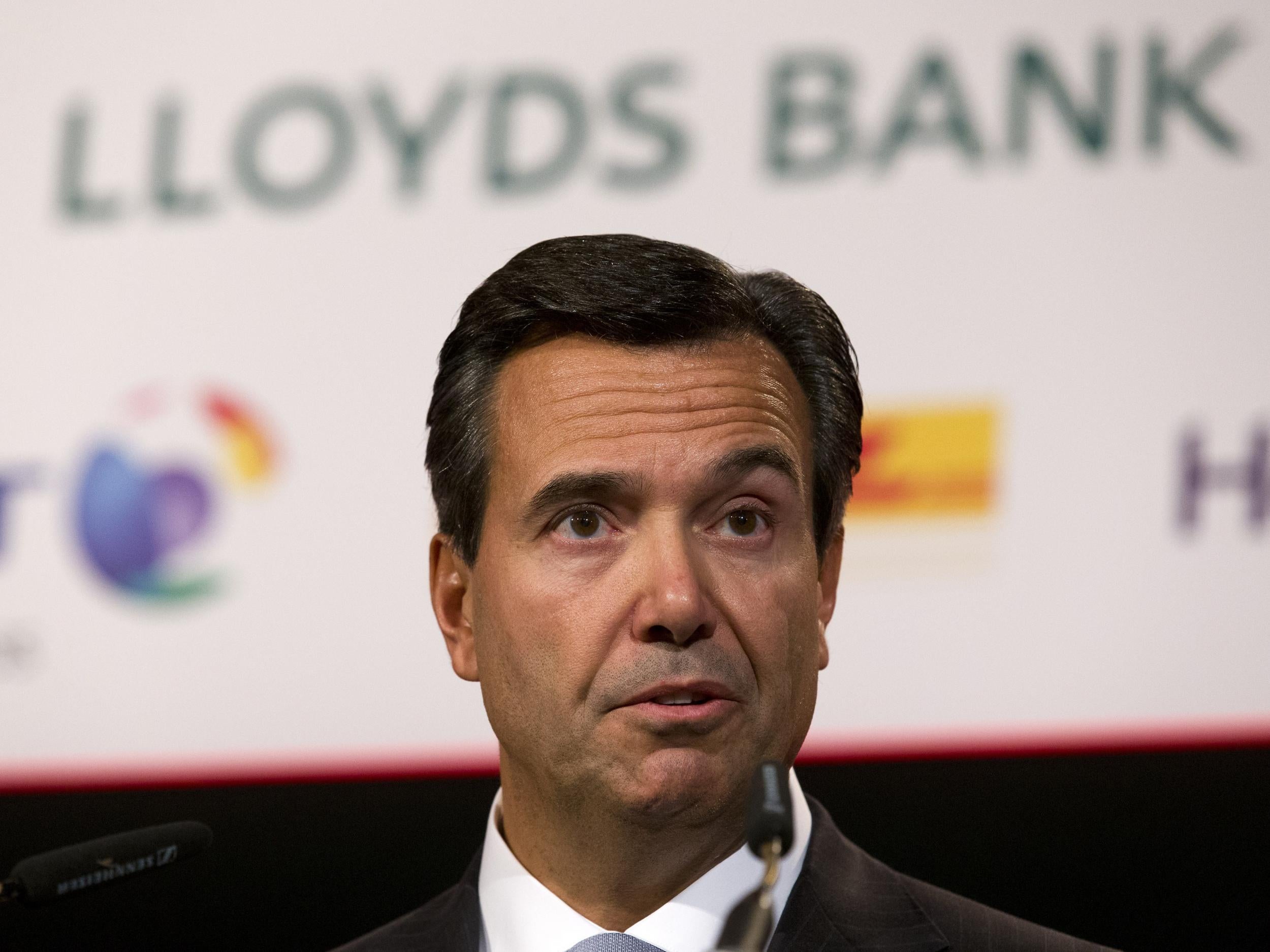Lloyds Banking Group PPI provisions reach a staggering £17bn. Who's really to blame for that?
Institutional investors are failing their clients by not asking tougher questions of banks, and sitting back as money is poured into black holes of scandal

Your support helps us to tell the story
From reproductive rights to climate change to Big Tech, The Independent is on the ground when the story is developing. Whether it's investigating the financials of Elon Musk's pro-Trump PAC or producing our latest documentary, 'The A Word', which shines a light on the American women fighting for reproductive rights, we know how important it is to parse out the facts from the messaging.
At such a critical moment in US history, we need reporters on the ground. Your donation allows us to keep sending journalists to speak to both sides of the story.
The Independent is trusted by Americans across the entire political spectrum. And unlike many other quality news outlets, we choose not to lock Americans out of our reporting and analysis with paywalls. We believe quality journalism should be available to everyone, paid for by those who can afford it.
Your support makes all the difference.But, says Lloyds, this provision is the last one, absolutely positively the last one; no more, promise, cross our hearts and hope to die, stick a needle in our eye. If the regulators don’t do that last one to us first.
How do we know this is so? Well, chief executive Antonio Horta-Osorio has said so, that’s how.
He does have grounds to feel confident thanks to the time bar on claims introduced by the Financial Conduct Authority, with the aim of drawing a line under the scandal.
That does, of course, mean that some people who have been ripped off won't receive any compensation. But who cares about them when you have an entire industry’s reputation that’s in need of a good airbrushing?
Certainly not Lloyds, which is busy doing its bit with a series of syrupy ads featuring the famous black horse.
You can understand the frustrations of Mr Horta-Osorio and his team. They were not the cause of the scandal, which had its genesis years before they assumed their august positions.
They would dearly like to talk about something else, such as the money Lloyds is now making, and the fact that its margins are looking quite chipper despite how hard everyone says it is for banks to make money when interest rates are scraping along the floor.
They would just love to be able to point you to some of the favourable analyst comments knocking around. Profits might have been a shade below expectations, but only a shade, and the bank might be in a position to pay out a rather better dividend than some of its shareholders might have expected.
There’s been a bit of jiggery pokery with the capital (all above board so you don’t need to call upon m’learned friends, Mr Horta-Osorio) so Lloyds now looks financially rather stronger than it did and might have room to juice its payout.
Investec’s banking analyst Ian Gordon puts the possible divvy at 3.5p a share for the full year 2016, notwithstanding the pension scheme’s plunge into deficit because that’s expected to improve later on this year.
Good news, if you’re a shareholder, or if you have savings linked to Lloyds shares, which, if you have pensions or ISAs, or other such products, you probably do.
Of course, shareholders would have been paid an awful lot more dividends without the PPI scandal. Most of the £17bn set aside to deal with compo claims would have found its way into their pockets, less a few seven-figure bonuses, had Lloyds not set about selling PPI like candy and incentivising its people to do so with the candy of bonuses a few years ago.
You’d think that would register with a few of the shareholders that have lost out. I am, of course, talking about the institutional investors that get regular and privileged access to management here.
They could, if they were so inclined, take a rather more active role in overseeing the companies they “own” than they do. Instead of focusing just on quarterly earnings and what Lloyds chefs are serving up for lunch when they meet, they could choose to ask searching questions about whether the latest whizzo product dreamed up by the product development team is really such a good idea. They ought to know that it is possible to make too much money in banking, because if product X looks too good to be true it nearly always is.
Unfortunately, bar a few notable exceptions, they'll keep quiet. They’ll meet with Mr Horta-Osorio, lob a few soft-ball quesitons at him, and head back to their offices well satisfied with his financial projections.
Meanwhile, Royal Bank of Scotland is twisting and turning as ever more revelations about its treatment of small business customers emerge, and HSBC is breathing a sigh of relief because people aren’t talking so much about its problems with Switss private banks and tax.
As we're left to wonder where the next scandal is coming from, and how much it might cost, perhaps we should also ask a few more questions about why the owners of these banks, those institutional investors, aren’t doing more to prevent them from hurting their clients.
Join our commenting forum
Join thought-provoking conversations, follow other Independent readers and see their replies
0Comments